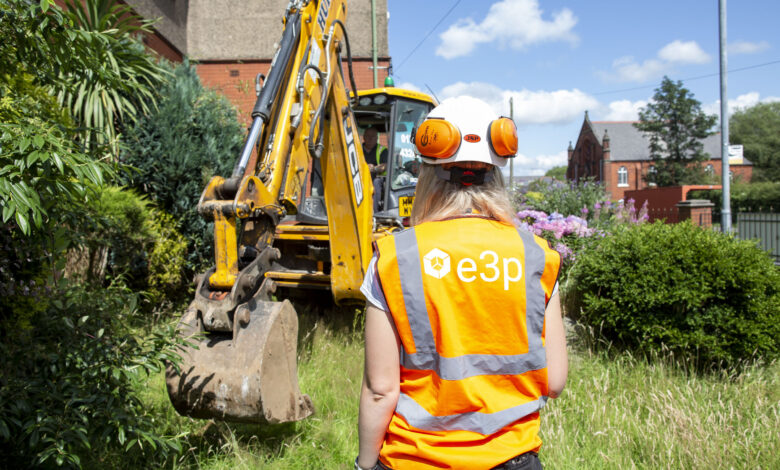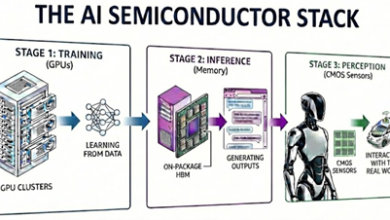
AI is making waves across every sector in the UK right now, and ground engineering is no exception. The key to successfully embracing and implementing AI is to reconsider how it is viewed. It is not a tool for replacing people or technical expertise but one for reshaping how teams work to maximise efficiencies.
Nearly 93% of UK CEOs report some adoption of generative AI tools in the past year and many are already seeing real benefits. It allows for quicker reporting, improved data use, and smoother decision-making.
And with the UK government announcing it will invest £2BNin AI development in the recent Spending Review, businesses will only witness the shift accelerating. For ground engineers, the key opportunity lies in how AI can unlock the value in data.
From AGS files to actionable insight
Geotechnical and environmental consultants generate huge volumes of scientific data, much of which is stored in AGS files and spreadsheets, or even on paper in some cases. These formats are rich in detail but prove very time-consuming to process.
At E3P, we’ve begun using networks of AI agents to tackle this challenge. One agent might convert old reports into digital form, while another organises the data, and a third presents it in factual form for engineering and scientific interpretation.
It’s not automation for its own sake but is about creating workflows that make technical teams faster, more consistent, and more focused on delivering value.
Freeing up resources, not replacing humans
The misconception that AI will replace engineering roles is persistent, but the tide slowly appears to be shifting as more businesses see the benefits of AI and its role in unlocking resources, rather than replacing them.
Within ground engineering and geotechnical services, AI doesn’t go into the field, interpret soil texture, and assess unexpected results or provide detailed interpretation. Nor does it liaise with varying stakeholders, including developers, contractors, local authorities, environmental consultants and more.
What it can do is reduce repetitive tasks and help connect complex datasets at speed, allowing teams to work more impactfully. These tools act as intelligent assistants, while our teams remain in control. For example, we’ve found success in using AI for:
Extracting data from inconsistent AGS formats
Automatically generating factual data summary
Visualising data for quicker review
Success is already evident
AI is already delivering measurable wins across UK infrastructure and consultancy firms. Tools that automate factual report creation or data standardisation are cutting project admin. Predictive models are also being used to identify risk earlier, improving safety and saving costs.
Without a doubt, AI is helping teams spend less time on repetitive checking, and more time thinking strategically. This is a game-changer for firms looking to improve productivity without expanding headcount of administrative roles.
But any level of success with AI takes time. Companies need to try different agents, develop custom prompts, and write scripts to get them to work together. Technical teams need to stay closely involved in the process, understanding the limitations of AI, validating outputs, and continuously improving the system.
This is why we place a strong focus on ongoing training and core skill development, ensuring that junior team members can build strong technical foundations – even as their work evolves with AI. Rather than their knowledge diluting as new tools emerge, their learning can be embedded into everyday practice – focusing not just on how to use AI, but on actively building their strategic and analytical skills.
The challenge isn’t the AI itself, but creating robust frameworks it can work within.
Lead with empathy, not urgency
But success won’t just be about tools. It depends on people.
We’re in the middle of the biggest workplace shift in decades. In ground engineering, where deep expertise is the norm, change can feel threatening, and many people worry about being left behind.
That’s why leadership style matters more than ever. Empathetic leadership is critical to integrating AI successfully. People need space to explore, learn, and voice their ideas and their doubts.
Here’s what that looks like in practice:
Starting conversations early, offering transparency around AI, its capabilities, and its purpose.
Provide relevant training that goes beyond how to “use AI,” but considers how it compliments core training and applies to engineering workflows.
Foster psychological safety, letting teams experiment without fear of failure.
Celebrating progress and sharing wins from early adopters to reinforce a culture of learning.
AI will only succeed if the people using it are empowered to grow alongside it.
Upskilling for the future
Tomorrow’s ground engineers will wear multiple hats: part designer, part data interpreter, part AI prompt architect and this makes them even more valuable. It encourages agility and productivity, while ensuring the skills of our workforce remain in demand.
AI isn’t about replacing technical teams. It’s about rethinking how we work to ensure greater time is spent on analysis, interpretation, and design, and less on the repetition of mundane tasks.
With the right mindset and leadership, firms can unlock new efficiencies while retaining the expertise that sets them apart. The firms that succeed in this transition won’t be those with the flashiest tools. They’ll be the ones who empower their people, train for the future, and lead with trust.



